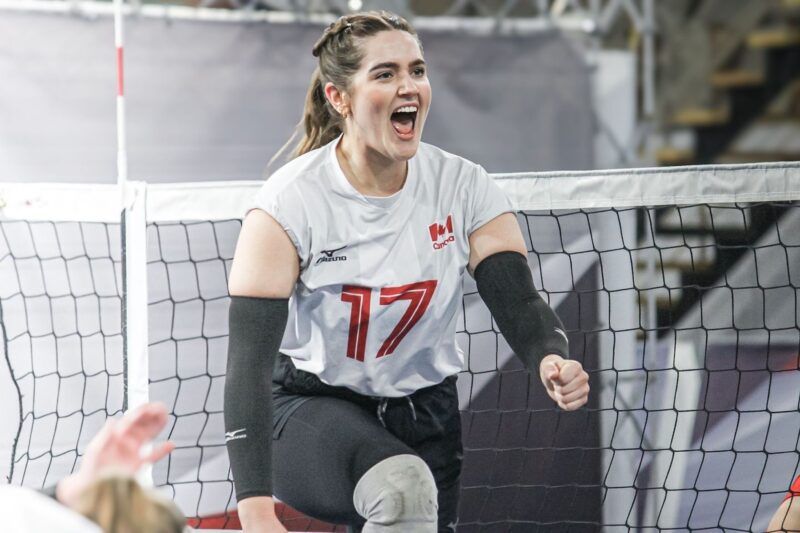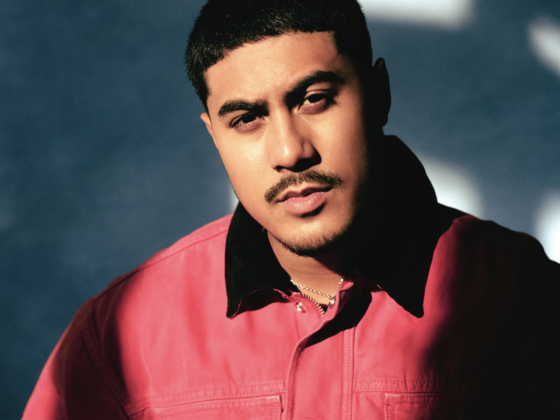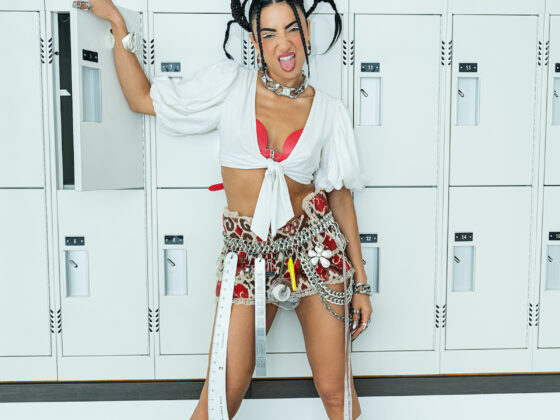Canadian Paralympian, disability and amputee advocate, model, and content creator Allison Lang took to social media on Wednesday to state that she would not be participating in the upcoming Paris 2024 Paralympic Games. While the message was cause for concern for anyone who’s been following Lang’s journey to the Paris 2024 Paralympic Games as a member of Canada’s sitting volleyball team, this was immediately replaced with relief once her followers swiped through her carousel of posts. More than relief, in fact. While Lang, who was born without the lower half of her left leg, won’t be “participating,” she will be COMPETING in the Paris 2024 Paralympic Games. And we’re here for it.
Accompanied by a hashtag of #NotPlayingGames, the social media post was part of a larger campaign undertaken by some of the athletes set to compete in the Paris 2024 Paralympic Games, which will take place from August 28 to September 8. “Paralympians have often been described by the media as ‘participants’ and not ‘competitors,’” reads the messaging. “At Paris 2024, it’s time we set the record straight.”
Allison Lang is on a mission to do just that at the Paralympic Games. “The #NotPlayingGames campaign was the International Paralympic Committee’s idea, and athletes from all across the world came out to post that message on social media to start the conversation,” says Lang. “Because, there is still that prejudice between Olympic and Paralympic sport, and we’re trying to dismantle the negative stigma around the Paralympic Games.”
ADVERTISEMENT |

Lang also has a simple request heading into the Games: don’t call her an Olympian. She is a proud Paralympian, thank you very much. Lang also took to Instagram last week to make the important distinction. In short, words matter.
“A lot of people will stop me when I call myself a Paralympian, and say things like, ‘Don’t say that; you’re an Olympian,’” explains Lang. “But that actually takes away from the valuable component of being a Paralympian and the pride that comes with that. Everyone goes through their own trauma and has their own story, however, there are such resilient and amazing athletes with incredible stories of overcoming things like illness, cancer, accidents, and life-threatening events that altered their bodies. We all have stories of struggling with body dysmorphia and self-love, and not knowing what our bodies were capable of – not because we didn’t believe in ourselves, but because society puts these stigmas on disabilities.”
As one example, Lang points to her struggle growing up seeing that those on television shows and movies with disabilities were always represented by able-bodied actors. “They also never depicted the story that I wanted them to; one of them becoming successful, falling in love, starting a business…doing all these incredible things,” says Lang. “So, I didn’t believe I ever could, and I struggled immensely with my self-worth.”
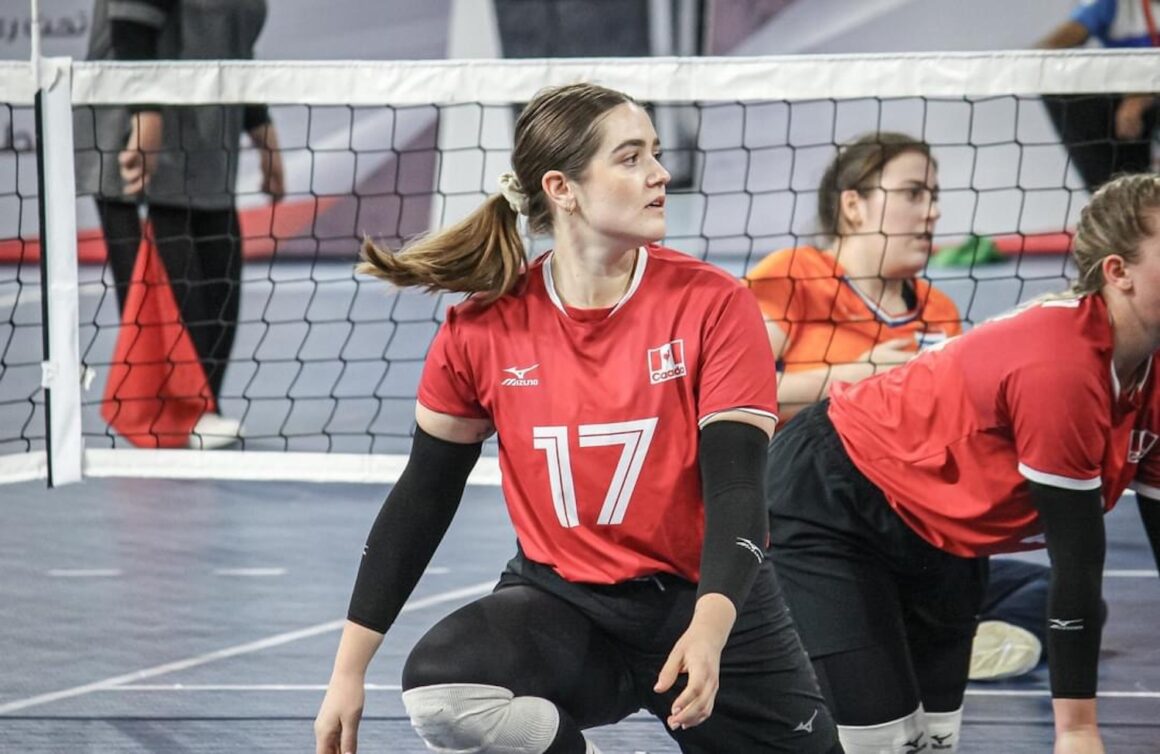
Lang was also bullied both emotionally and physically in school due to her disability. “I would have to get surgeries on my leg once in a while when I was going through growth spurts, and I would come to school on crutches or in a wheelchair, and I would be pushed around and called ‘peg leg,’ or ‘Barbie’ and picked last for sports,” recalls Lang.
ADVERTISEMENT |
The lowest point came in high school when the bullying and body image issues had taken such a toll that Lang – who grew up swimming, playing soccer, and snowboarding – quit playing sports. Things got so challenging that she didn’t want to live anymore. It was during this dark period when Lang discovered sitting volleyball, which was then a new sport in Canada.
“This was the first time I could sit down to play a sport and take off my leg, and it felt so freeing,” says Lang. “I felt like I could be my authentic self with these people and that’s what kept me in it, because I wasn’t great at first.” This was a stark contrast to playing soccer, when Lang would wear long shorts and hike up her socks in an attempt to hide her leg; or snowboarding, which she purposely took up because she could hide it all together under her gear.
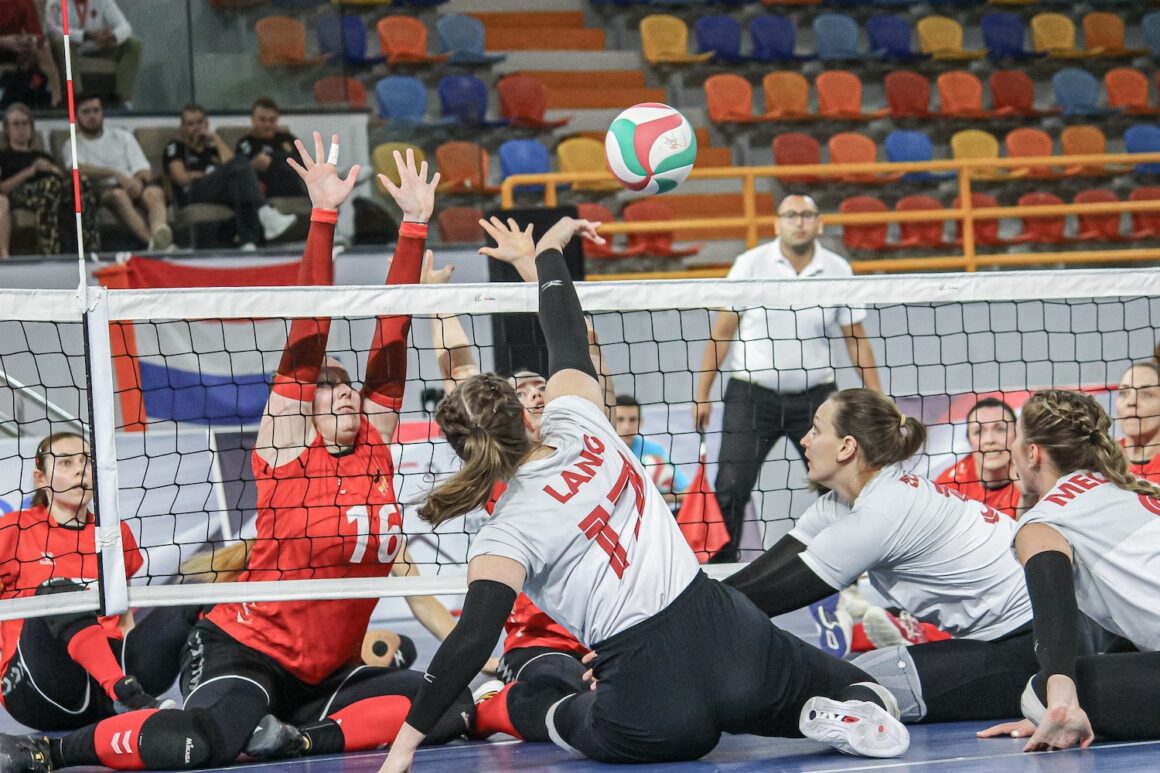
“As cliche as this sounds, adaptive sports saved me,” says Lang. “When I was 15 years old, it was at the height of my body image insecurities and I was invited to try sitting volleyball. It was the first time I met other people who were just like me, but they had all the things I aspired to have: partners, careers, families, and full lives. I finally had role models in my life and wanted to be surrounded by them as much as possible.”
Now, Lang hopes to become the role model she needs for other children and women, changing the narrative and trailblazing the way. Due to their lack of broadcast, Lang didn’t even know that the Paralympics – which began back in 1960 – existed. While times have changed since on the visibility front, the disappointing reality is that the Paralympics still get much less air time than the Olympic Games.
“The fact that they’re not broadcast the same goes right up there with the language of ‘participating’ versus ‘competing,’” says Lang. “Even though we’re creating an accessible place for people to compete, it’s still not accessible for people to watch back home. We’ve had to fight to get on broadcast. My team has signed petitions and shown up to protest, sent letters, and gotten people to write in just for our Games to be broadcast.”
ADVERTISEMENT |
Currently, Lang says that the preliminary round will be broadcast on CBC Gem, but there’s no word whether the bronze or gold medal matches will be broadcast. “So, we can’t share that excitement and representation with friends and family who aren’t there in Paris watching,” says Lang. And there’s a good chance they’ll end up on the podium, too. Canada’s women’s sitting volleyball team is currently ranked number one in the world.
“We’ve had three silver medals in the last three major competitions leading up to this, and we’re ready to fight,” says Lang. “We’re ready to get a medal and bring it home to Canada because a Canadian sitting volleyball team hasn’t done that yet. It would be so cool to say that I brought home a medal with my team at my very first Games.”

Lang and her team have touched down in Paris and her family and partner are packing their bags for the Games. “I’m honestly so looking forward to these Games, it’s indescribable; it’s a combination of nerves, excitement, and hopefulness,” says Lang. “The thing I am most looking forward to is – my team is amazing and the best group of women I could be surrounded with – and I can’t wait to go out there and put Canada on the map for sitting volleyball on the map and bringing more awareness to adaptive sport.”
ADVERTISEMENT |
While Lang’s journey is undoubtedly an inspirational one, it’s also heartbreaking at the same time to hear about her childhood struggles. But Lang says she’s used the bullying and challenges in a positive way to change the narrative for others. “It’s what contributes to my message now and my ability to connect on a deeper level to others,” says Lang. “I’ve now accepted that that’s my story and I’m not going to let it impact me the way it used to. Instead, I use it in different ways than I can.”
While Lang is now used to a large platform on social media and the Canadian media landscape to tell this story and spread awareness, the world stage now awaits, as she makes the country proud as an inspiring Paralympian (not be confused with Olympian).


